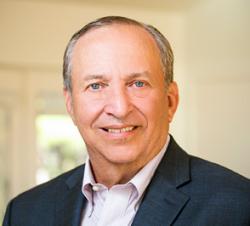The Brookings Institution is committed to quality, independence, and impact.
We are supported by a diverse array of funders. In line with our values and policies, each Brookings publication represents the sole views of its author(s).

Research
BPEA | 1981 No. 1
1981, No. 1
THE PAST DECADE has witnessed increasing concern over the level of
business capital formation in the United States. By some measures there
has been a sharp decline in the rate of capital formation, accompanied by
a drastic reduction in the stock market’s valuation of corporate assets.
Measured in 1981 dollars, the Dow Jones average stood at almost 2000
in 1965. This decline in investment and market valuation has occurred
in conjunction with the substantial changes in the effective taxation of
capital income brought on by inflation. Although causal links among
these developments have not been clearly established, a consensus in
favor of some sort of tax incentive for business capital formation has
emerged. At present, however, there is no solid basis for assessing the
likely impact of any given menu of tax policies on the level of investment
or on the distribution of income.